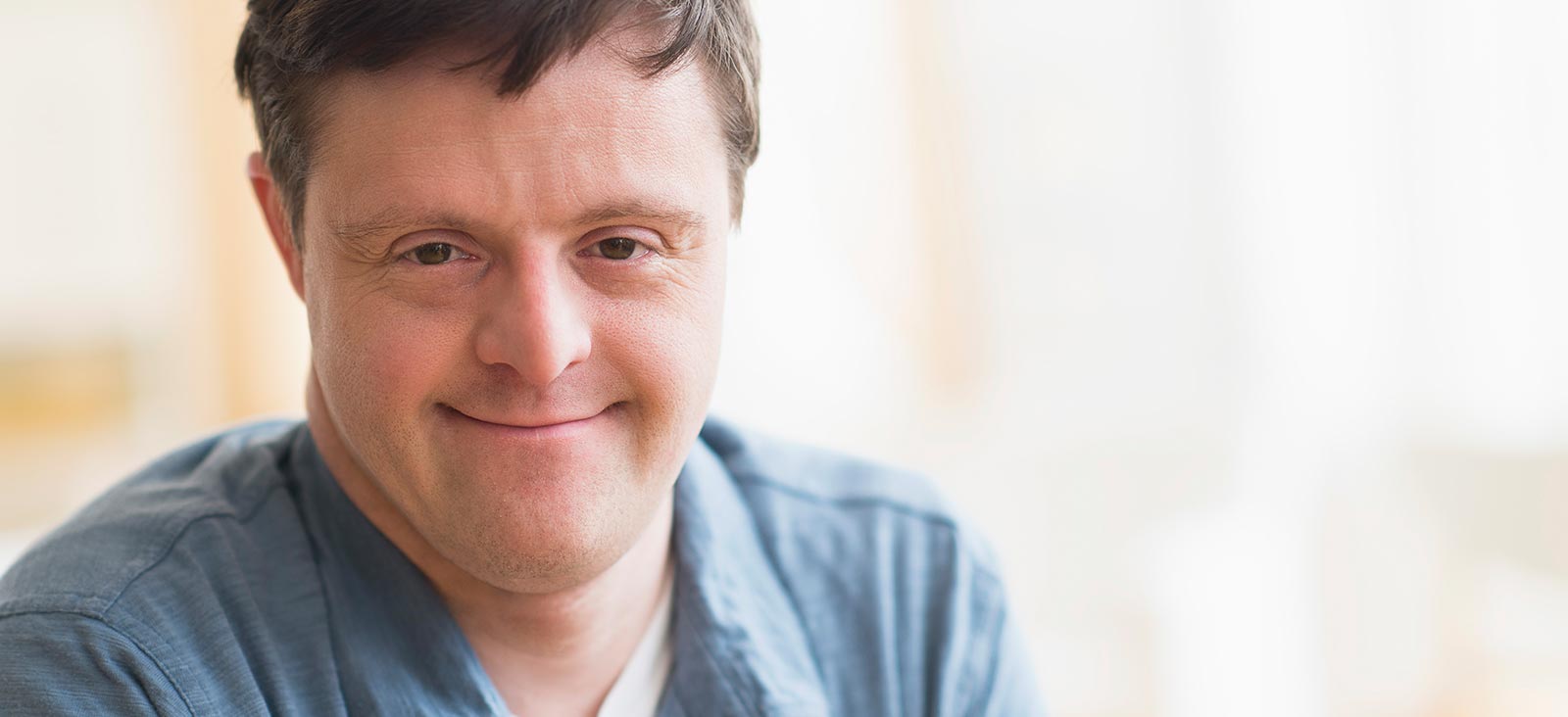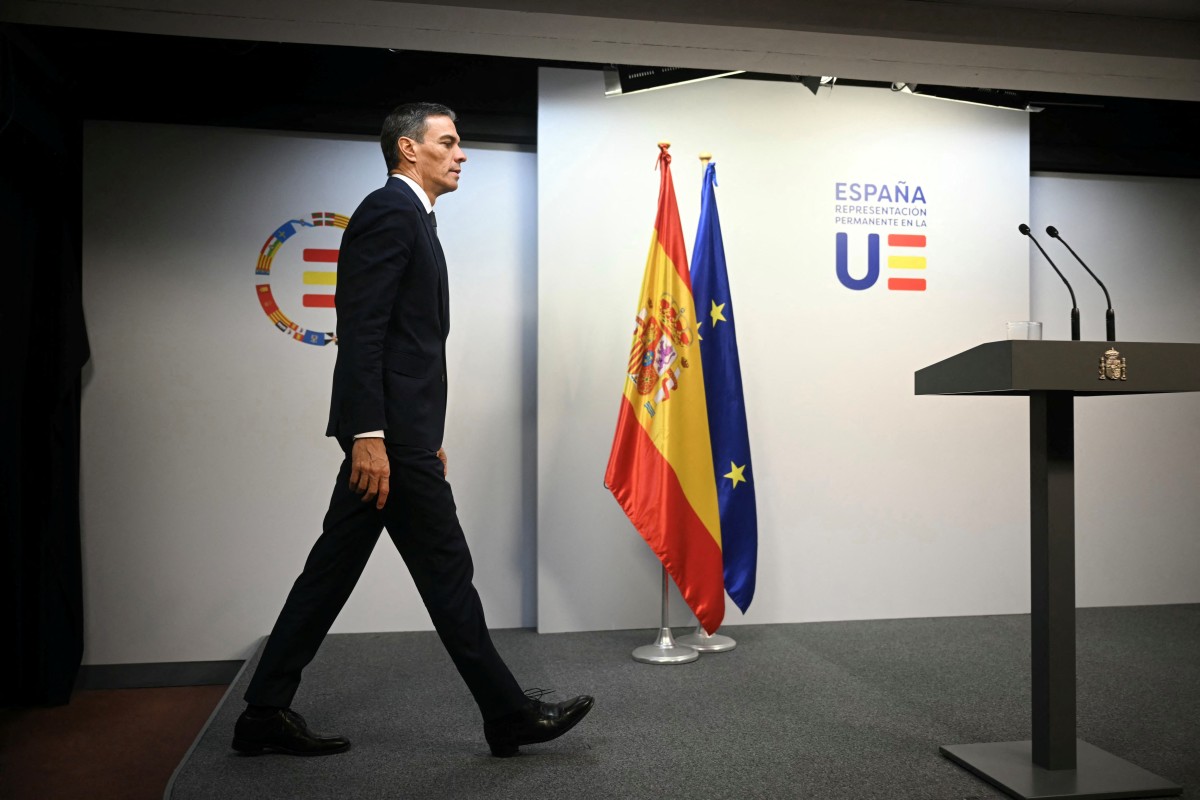International
Treatment improves cognition in Down Syndrome patients

AFP
A new hormone treatment improved the cognitive function of six men with Down Syndrome by 10-30 percent, scientists said Thursday, adding the “promising” results may raise hopes of improving patients’ quality of life.
However the scientists emphasised the small study did not point towards a cure for the cognitive disorders of people with Down Syndrome and that far more research is needed.
“The experiment is very satisfactory, even if we remain cautious,” said Nelly Pitteloud of Switzerland’s Lausanne University Hospital and co-author of a new study in the journal Science.
Down Syndrome is the most common genetic form of intellectual disability, occurring in around one in 1,000 people, according to the World Health Organization.
Yet previous research has failed to significantly improve cognition when applied to people with the condition, which is why the latest findings are “particularly important”, the study said.
Recent discoveries have suggested that how the gonadotropin-releasing hormone (GnRH) is produced in the brain can affect cognitive functioning such as memory, language and learning.
GnRH hormones regulate how much testosterone and estrogen is produced and increased levels of it help spur puberty.
“We wondered if this hormone could play any role in establishing the symptoms of people with Down Syndrome,” said Vincent Prevot, study co-author and head of neuroscience research at France’s INSERM institute.
– Mice research –
The team first established that five strands of microRNA regulating the production of GnRH were dysfunctional in mice specifically engineered for Down Syndrome research.
They then demonstrated that cognitive deficiencies — as well as loss of smell, a common symptom of Down Syndrome — were linked to dysfunctioning GnRH secretion in the mice.
The team then gave the mice a GnRH medication used to treat low testosterone and delayed puberty in humans, finding that it restored some cognitive function and sense of smell.
A pilot study was conducted in Switzerland involving seven men with Down Syndrome aged 20 to 50.
They each received the treatment through their arm every two hours over a period of six months, with the drug delivered in pulses to mimic the hormone’s frequency in people without Down Syndrome.
Cognition and smell tests were carried out during the treatment, as were MRI scans.
Six of the seven men showed improvement in cognition with no significant side effects — however none showed a change in their sense of smell.
“We have seen an improvement of between 10-30 percent in cognitive functions, in particular with visuospatial function, three-dimensional representation, understanding of instructions as well as attention,” Pitteloud said.
The patients were asked to draw a simple 3D bed at several stages throughout the therapy. Many struggled at the beginning but by the end the efforts were noticeably better.
– ‘Improve quality of life’ –
The authors acknowledged some limitations of the study, including its size and that the choice of patients was “pushed by their parents”.
“The clinical trial only focused on seven male patients — we still have a lot of work to do to prove the effectiveness of GnRH treatment for Down Syndrome,” Pitteloud said.
A larger study involving a placebo and 50 to 60 patients, a third of them women, is expected to begin in the coming months.
“We are not going to cure the cognitive disorders of people with Down Syndrome, but the improvement seen in our results already seems fundamental enough to hope to improve their quality of life,” Pitteloud said.
Fabian Fernandez, an expert in cognition and Down Syndrome at the University of Arizona who was not involved in the research, hailed the “tour de force study”.
He told AFP that while it is “difficult to envision” how such an intensive treatment could be used for young people, it might be better suited to delay the Alzheimer’s disease-related dementia suffered by many adults with Down Syndrome.
It was also difficult to predict how such an improvement could impact the lives of people with the condition, he said.
“For some, it could be significant, however, as it would enable them to be more independent with daily living activities such as maintaining and enjoying hobbies, finding belongings, using appliances in the home, and travelling alone.”
International
Winter Storm Fern Leaves 30 Dead and Over One Million Without Power Across the U.S.

The massive winter storm Fern, bringing polar temperatures, battered large portions of the United States for a third consecutive day on Monday, leaving at least 30 people dead, more than one million households without electricity, and thousands of flights grounded.
In the Great Lakes region, residents awoke to extreme cold, with temperatures dropping below -20°C. Forecasts indicate that conditions are expected to worsen in the coming days as an Arctic air mass moves south, particularly across the northern Great Plains and other central regions, where wind chills could plunge to -45°C, temperatures capable of causing frostbite within minutes.
Across the country, heavy snowfall exceeding 30 centimeters in roughly 20 states triggered widespread power outages. According to PowerOutage.com, nearly 800,000 customers remained without electricity on Monday morning, most of them in the southern United States.
In Tennessee, where ice brought down power lines, approximately 250,000 customers were still without power. Outages also affected more than 150,000 customers in Mississippi and over 100,000 in Louisiana, as utility crews struggled to restore service amid dangerous conditions.
International
Spain approves plan to regularize up to 500,000 migrants in Historic Shift

In November 2024, Spanish Prime Minister Pedro Sánchez announced a reform of the country’s immigration regulations aimed at regularizing 300,000 migrants per year over a three-year period, in an effort to counter population aging in a country where births have fallen by 25.6% since 2014, according to official data.
Going against the trend in much of Europe, Spain’s left-wing government has now approved an exceptional migrant regularization plan that could benefit up to 500,000 people, most of them from Latin America.
The measure will allow the regularization of around “half a million people” who have been living in Spain for at least five months, arrived before December 31, 2025, and have no criminal record, Migration Minister Elma Saiz explained on public television.
The plan, approved on Tuesday by the Council of Ministers, establishes that applications will be processed between April and June 30, enabling beneficiaries to work in any sector and anywhere in the country, Saiz said.
“Today is a historic day for our country. We are strengthening a migration model based on human rights, integration, and one that is compatible with economic growth and social cohesion,” the minister later stated at a press conference.
The socialist government of Pedro Sánchez stands out within the European Union for its migration policy, contrasting with the tightening of immigration measures across much of the bloc amid pressure from far-right movements.
Central America
Honduras swears in conservative president Asfura after disputed election

Conservative politician Nasry Asfura assumed the presidency of Honduras on Tuesday with an agenda closely aligned with the United States, a shift that could strain the country’s relationship with China as he seeks to confront the economic and security challenges facing the poorest and most violent nation in Central America.
Asfura’s rise to power, backed by U.S. President Donald Trump, marks the end of four years of left-wing rule and secures Trump another regional ally amid the advance of conservative governments in Chile, Bolivia, Peru, and Argentina.
The 67-year-old former mayor and construction businessman was sworn in during an austere ceremony at the National Congress, following a tightly contested election marred by opposition allegations of fraud and Trump’s threat to cut U.S. aid if his preferred candidate did not prevail.
Grateful for Washington’s support, Asfura—who is of Palestinian descent—traveled to the United States to meet with Secretary of State Marco Rubio, before visiting Israeli Prime Minister Benjamin Netanyahu.
“We need to strengthen relations with our most important trading partner,” Asfura said after being declared the winner of the November 30 election by a narrow margin, following a tense vote count that lasted just over three weeks.
-

 Central America2 days ago
Central America2 days agoGuatemala seizes over a ton of cocaine hidden in flour at Pacific port
-

 Central America5 days ago
Central America5 days agoGuatemala’s president rules out negotiations with inmates after prison riots
-

 International4 days ago
International4 days agoTrump-Era Defense Plan Prioritizes Border Security and Scales Back Global Commitments
-

 Internacionales5 days ago
Internacionales5 days agoMajor winter storm threatens “catastrophic” ice and snow across much of the U.S.
-

 International4 days ago
International4 days agoBogotá and Quito Seek Dialogue After Tariffs and Power Cut Escalate Tensions
-

 International3 days ago
International3 days agoDelcy Rodríguez seeks political agreements after Maduro’s ouster
-

 International5 days ago
International5 days agoGuatemala considers sending high-risk gang members to military prisons
-

 International2 days ago
International2 days agoHistoric snowstorm paralyzes Toronto after 60 centimeters of snow
-

 International2 days ago
International2 days agoSpain’s irregular migrant population rises to 840,000, study finds
-

 International3 days ago
International3 days agoFederal immigration agents kill man in Minneapolis, sparking protests and outrage
-

 International5 days ago
International5 days agoRights group says over 5,000 killed in Iran protests, mostly civilians
-

 Central America1 day ago
Central America1 day agoGuatemala Police Arrest Prison Guard Caught in the Act of Extortion
-

 Sin categoría1 day ago
Sin categoría1 day agoEight Killed in Series of Armed Attacks in Ecuador’s Manabí Province
-

 International1 day ago
International1 day agoWinter Storm Fern Leaves 30 Dead and Over One Million Without Power Across the U.S.
-

 Central America1 day ago
Central America1 day agoHonduras swears in conservative president Asfura after disputed election
-

 International1 day ago
International1 day agoDoomsday clock moves to 85 seconds before midnight amid rising global risks
-

 International2 days ago
International2 days agoRights group says nearly 6,000 killed in Iran protest crackdown
-

 Central America1 day ago
Central America1 day agoBukele leads public trust rankings as UCA survey highlights gains in security
-

 International2 days ago
International2 days agoVenezuela frees at least 80 political prisoners, NGO says
-

 International1 day ago
International1 day agoSpain approves plan to regularize up to 500,000 migrants in Historic Shift
-

 Sin categoría1 day ago
Sin categoría1 day agoEl Salvador Launches Fourth Year of Ocean Mission to Protect Marine Ecosystems
-

 International2 days ago
International2 days agoEU launches new probe into X over AI-generated fake nude images
-

 International2 days ago
International2 days agoSevere winter storm grips U.S., leaves multiple dead as extreme cold persists
-

 International2 days ago
International2 days agoFrance debates ban on social media for children under 15


























